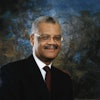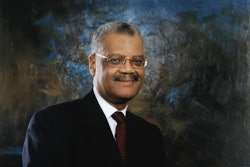ROLLA Mo.
Stern and unsmiling, the professorial portraits lining the hallways of the University of Missouri-Rolla’s chemical engineering department project a singular message: science is serious stuff. The graybeards in those photos would likely be aghast at the scene unfolding inside a nearby Schenk Hall classroom.
Amid a chorus of preteen giggles and squeals of excitement, a gaggle of seventh- and eighth-graders learn about chemical reactions by creating do-it-yourself ice cream. The message: embrace your inner geek, girls. And don’t be afraid to have fun along the way.
Statistics show that women are significantly underrepresented in both the study and practice of science, technology and engineering. The imbalance is particularly acute in Rolla, where 77 percent of students at the university soon to be known as the Missouri University of Science and Technology are male.
Women are even more scarce among the school’s professors. They account for just 13 percent of the faculty, said Kim Henthorn, an assistant professor of chemical engineering and one of just two women in her department.
Henthorn and other female faculty were front and center at the university’s recent summer science camps for girls in grades 7-10. More than 60 campers attended the two residential programs, with girls traveling from as far as Texas, Ohio, Kentucky, Florida, Wisconsin and California.
“What we try to do is portray how engineers (and scientists) help people, and are part of the caring professions even if you’re designing a microchip,” said Cecilia Elmore, camp coordinator and director of the university’s Women’s Leadership Institute.
The weeklong program for ninth- and 10th-graders was so popular that Elmore and her colleagues created the three-day “It’s A Girl’s Thing” camp for younger students. Now in its second year, the camp will likely expand into a weeklong program next summer, she said.
Capturing the attention of middle-school girls before they succumb to anti-intellectual social pressures of high school is critical to training more female scientists, said camp counselor Lori Kennedy.
The single-sex classroom also reduces the hormonal distractions of the opposite sex, said Kennedy, 20, a junior physics major from Belleville, Ill.
“They’re boy-crazy at this age,” she said.
Dressed in stylish pink-and-black T-shirts, the 28 campers traipsed through the Rolla campus, absorbing the college experience while visiting the school’s metal foundry, experimental mine and an assortment of labs.
They used liquid nitrogen to freeze marshmallows, ate the icy product of their chemical concoctions and otherwise learned to incinerate many of the well-trodden stereotypes about girls and science.
For Caroline Kopff, 13, a home-schooled student from St. Louis, the camp highlights were equally visceral. This is, after all, the place known decades ago as the Missouri School of Mines.
“We went into the mine yesterday and watched people blow stuff up,” she said when asked to name her favorite activity.
Lindie Pierce, also 13, is a veteran of summer science camps, having attended two aerospace sessions at the university. Next year, she plans to visit a NASA space camp.
The aspiring robotics engineer from Springfield, the daughter of a mechanic and a school worker, said she has always been taught to aim high.
“For the longest time, women were told they should just be homemakers,” Lindie said. “But we’re just as smart as men.”
On the Net:
University of Missouri-Rolla Women in Science and Engineering: http://www.wise.umr.edu
© Copyright 2005 by DiverseEducation.com















